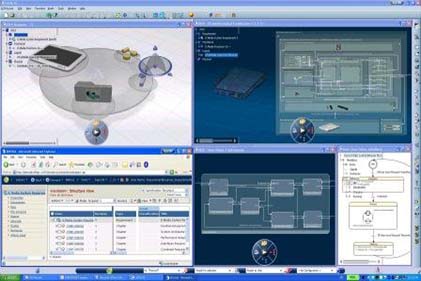Systems Engineering
Even if you’re not going to the moon, failure is not an option for projects involving huge investments, critical processes, and the daily activities of hundreds or thousands of people. The sheer complexity of modern large scale engineering and business operations means that an integrated and comprehensive approach to systems design is critical in order to reduce risk and optimize performance across the entire operation.
Global Technica’s 20 years of systems engineering experience includes design and analysis of complex systems, modeling and simulation, requirements management, design of system interfaces, CONOPS, risk management, and verification and validation. We combine our cross-platform design and development experience combined with deep expertise in UI design, human factors, and cognitive science to produce predictive models and simulations that ensure your systems will function as envisioned.
Our experience spans the aerospace, defense, communications, and entertainment markets. We are a Tier 1 preferred supplier of systems engineering solutions for Boeing, specializing in human factors, user interface, modeling and simulation, and software architectures and complex system design and implementation. Our many successful completed projects combined system architecture, design, and implementation of fast-time discrete event simulation frameworks as well as tool suites for Boeing Phantom Works and Boeing Research and Technology.
Case Study
Global Technica helped one client determine the optimal configuration for a new Unmanned Aerial Vehicle (UAV) for the Department of Defense prior to building any costly prototypes. We created an advanced analytical model and simulation that allowed the client to study the tradeoffs associated with all of the independent variables by running high fidelity simulations on different configurations of UAVs conducting a wide variety of missions. A few of the factors that were analyzed included the size of the vehicles, weight of the vehicles, power requirements, sensor load capabilities, fuel tank size, fuel burn rates, costs, etc.
The simulation was so successful that the client then asked Global Technica to incorporate the UAV simulation into a much larger wireless radio communication and command and control simulation. This gave the client the ability to utilize the functionality of the UAV simulation inside the context of the larger wireless radio communication and command and control simulation.


